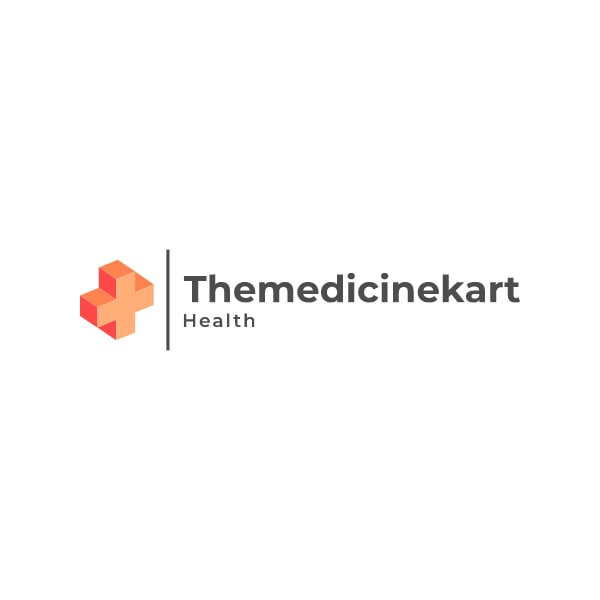How Technology is Revolutionizing Access to Medications
- Medicine kart
- May 20, 2025
- 5 min read
The digital age has transformed various sectors, and healthcare is no exception. One of the most significant advancements is the way we access medications. With technology at the forefront, patients now enjoy better access, convenience, and affordability in obtaining their medications. This blog explores how technology is revolutionizing access to online medications, providing practical insights into the changes we are witnessing.
The Rise of Online Medications
In the past, accessing medications often required long waits at pharmacies and doctor’s offices. However, with the emergence of online pharmacies, obtaining prescriptions and over-the-counter drugs has become incredibly convenient. Patients can now order medications with a few clicks, allowing them to manage their healthcare more effectively.
According to a study by the National Center for Biotechnology Information, more than 35% of adults in the United States have used an online pharmacy at some point in their lives. This rapid increase highlights how online platforms have gained popularity as a preferred method for accessing medications.

The ability to compare prices, read reviews, and receive expert recommendations has empowered consumers. This transparency helps patients make informed choices about their health. Moreover, many online pharmacies offer a subscription service, ensuring that patients receive refills without the hassle of reordering each time.
How Technology Enhances Prescription Management
Managing prescriptions can be a daunting task for many. Enter the role of technology in easing this burden. Patients can now utilize apps and digital platforms to keep track of their medication schedules, dosage, and refill dates. These tools not only remind patients when it's time to take their medications but also notify them when they need refills.
The impact of these technologies is significant. For example, a survey published in the Journal of Medical Internet Research found that patients using medication management apps were 30% more likely to adhere to their prescribed treatments than those who did not use such tools.

Furthermore, telehealth platforms enable virtual consultations with healthcare professionals. Patients can discuss their medication needs, receive updated prescriptions, and get personalized health advice—all from the comfort of their homes. This shift has increased access to healthcare for individuals in rural areas or those with mobility issues.
Which Online Pharmacy Delivery is Best?
When choosing an online pharmacy for medication delivery, certain factors should be considered. Safety, reliability, and cost all play crucial roles in making an informed decision.
Reputation: Opt for pharmacies that are licensed and verified by relevant health authorities. Websites should have clear certifications and customer reviews.
Availability: Ensure the online pharmacy carries a wide range of medications. This is essential for individuals with specific health needs.
Customer Service: Efficient customer support can make a big difference. Look for pharmacies that offer 24/7 assistance or chat support.
Delivery Options: Delivery speed and flexibility can vary by provider. Choose a service that meets your timeline and delivery preferences.
Pricing: Compare prices across different pharmacies. Many online options may offer better deals than traditional brick-and-mortar ones, along with special discounts or loyalty programs.
An example of a reputable online pharmacy is The Medicine Kart, which provides a wide variety of medications with easy navigation and transparent pricing.
Impact of E-Prescriptions
E-prescriptions are another technological advancement improving medication access. Healthcare providers can send prescriptions directly to pharmacies electronically, reducing errors related to handwriting or miscommunication.
A study conducted by the Agency for Healthcare Research and Quality revealed that e-prescriptions led to a 20% decrease in prescription discrepancies. This improvement not only enhances patient safety but also expedites the process, allowing patients to get their medications quicker than before.

Moreover, e-prescribing systems can alert physicians to potential drug interactions and allergies, contributing to safer medication usage. This system has proven especially beneficial for chronic condition management, where patients often require multiple prescribed drugs.
The Role of Artificial Intelligence and Machine Learning
Artificial Intelligence (AI) and Machine Learning (ML) are transforming how pharmacies interact with patients. These technologies can analyze vast amounts of data to predict medication needs, provide inventory management solutions, and even personalize recommendations based on health histories.
For example, AI can assess a patient’s prescription history and suggest alternatives that may be more effective or cost-efficient. This feature is especially crucial for patients on long-term medication regimens. Several studies, including one from the Health Affairs Journal, indicated that patients utilizing AI-driven platforms reported a 25% increase in satisfaction with their medication management.
Additionally, AI chatbots are becoming commonplace in providing immediate responses to patient inquiries. These tools can help answer questions about medication usage, side effects, and interactions at any hour, ensuring patients receive timely information.
Challenges and Solutions in Accessing Medications
Despite the benefits, there are challenges in transitioning to online medications and technology-driven solutions. Issues such as data privacy, cybersecurity, and the digital divide for older adults or those without internet access must be addressed.
Data Privacy: Ensuring the security of personal health information is paramount. Patients should only use pharmacies that comply with regulations like HIPAA (Health Insurance Portability and Accountability Act).
Education: Not all patients are tech-savvy. Providing educational resources and tutorials can help them better navigate online platforms and understand how to manage their prescriptions.
Internet Access: Many rural and underserved communities still face connectivity issues. Initiatives aimed at increasing internet access in these areas are vital for improving overall healthcare access.
Embracing the Future of Medication Access
Looking ahead, the integration of technology in healthcare will only continue to grow. As patients become more accustomed to digital interactions, the demand for seamless online medication experiences will rise.
Innovations like wearables and smart pills that monitor medication adherence will be significant. These technologies can alert both patients and doctors when medications are taken or missed, ensuring compliance and improving health outcomes.
Pharmacies are increasingly leaning towards automation and AI, which streamline processes, reduce operational costs, and enhance patient experiences. With advancements in virtual reality, patients may soon have immersive consultations with healthcare providers, further enhancing their online interactions.

Ultimately, the goal is to create a healthcare ecosystem where access to medications is not just a luxury, but a standard part of patient care. The more we embrace technology in healthcare, the closer we get to a future where every individual has easy access to the medications they need.
The Road Ahead
As we navigate this technology-driven future, ongoing education and adaptation are crucial. Healthcare providers, pharmacists, and patients must collaborate to maximize the benefits of online medications. By staying informed about new technologies and embracing changes, we can ensure that everyone has better access to the medications they need.
The revolution in online medication access is not just about convenience; it is about empowering patients to take charge of their health. By leveraging technology, we can break down barriers, improve adherence, and ultimately enhance overall health outcomes for everyone.





Comments